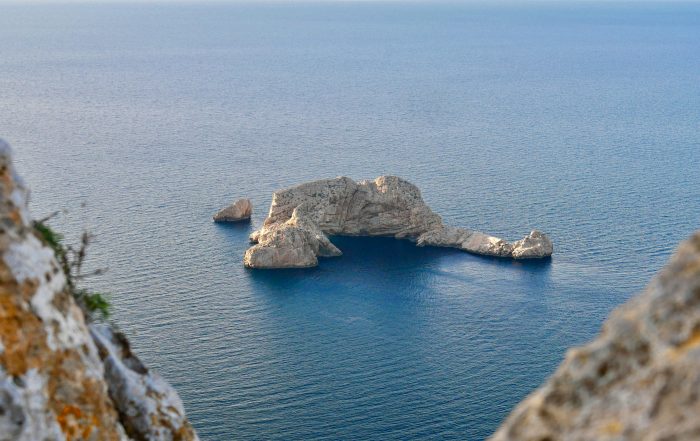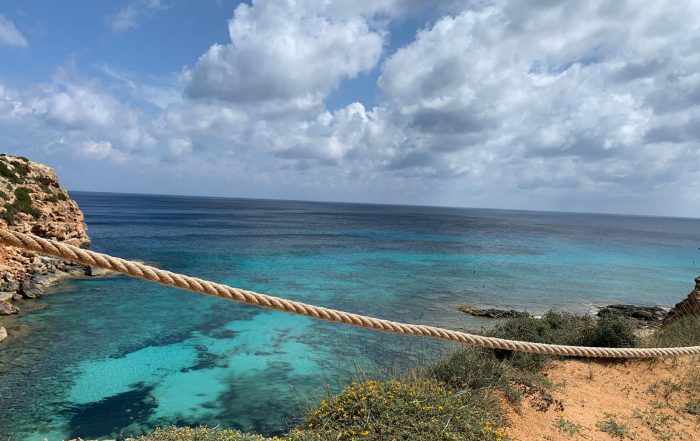Advice When Buying a Boat
Almar Lawyers
Almar Lawyers’ co-founder and marine legal expert Alejandro Bonet Templeton reveals some of the pitfalls for yacht purchasers and how to avoid them.
Alejandro’s links with the maritime world go back a long way to when he had part-time jobs as a mooring worker and cleaning yachts at Marina Ibiza Magma. Later, while studying law, he sailed several times between Ibiza and the Côte d’Azur. He has also worked as a leasing agent and for several large yachting consignment companies. Alejandro is now a lawyer at Almar Lawyers from where he shares his legal expertise with the nautical sector in Ibiza and beyond.
HOW DID YOU BECOME ONE OF THE MOST HIGHLY-REGARDED MARITIME LEGAL EXPERTS IN THE BALEARIC ISLANDS, ESPECIALLY IN THE FIELD OF RECREATIONAL SAILING?
Out of all the specialisms in the extensive field of maritime law I almost involuntarily ended up with a focus on the recreational sailing segment. I’ve spent my life involved with the nautical sector, which helps me to understand my clients, at a time when its popularity as a leisure pursuit has grown enormously in the Balearic Islands.
WHAT IS THE MOST COMMON QUESTION YOU’RE ASKED?
I want to buy a boat. Where do I start?
IS THE ANSWER ALWAYS THE SAME?
No, never. We always start with a long discussion with the client to find out exactly what they want so we can find the deal that best meets their needs. Then we look carefully with them at any sale contract before it’s signed, as well as the guarantees offered by the seller, and all the documentation that accompanies the boat.
WHAT ABOUT SECOND-HAND BOATS?
If a vessel has had previous owners, it is vital that its legal situation is carefully checked at the time of sale. We will, for instance, obtain the latest updated extract from the Maritime Registry.
IS THERE ANYTHING MORE TO DO ONCE YOU’VE BOUGHT A YACHT?
The main thing is to decide from which country the boat will be flagged. There are a number of possibilities and, again, we need to discuss with the owner what they intend to do with their new yacht before deciding which is the best registration for their intended purpose.
WHAT’S THE PROCESS IF YOU DECIDE TO REGISTER YOUR BOAT HERE IN SPAIN?
Every country has its own procedures and classifications. In Spain there are the well-known sixth and seventh lists. But, before you can register in any country you have to ensure you have the necessary documentation from the seller or shipyard. Without this you’ll find significant obstacles to registration in Spain or, indeed, in any other country. It’s surprisingly common to find people who don’t have the correct papers.
IF YOU BUY A BOAT HERE, DO YOU HAVE TO FLAG IT IN SPAIN?
In short, no. The Spanish Maritime Registry has been set up to provide a flag which is good value and meets all the necessary requirements for most owners. Bureaucratically, it’s simple. Also, as you’re able to apply through different maritime districts – Captaincies – it’s possible to avoid long administrative waits. So professionals are able to offer you more efficient services. However, as residents, flying the Spanish flag on your boat is a right, not an obligation.
WHAT ABOUT REGISTERING YOUR YACHT IN ANOTHER LEGISLATION?
Flags from other countries may suit the owner’s profile better, either because of their circumstances or because it’s where the vessel sails more often. But, the yacht doesn’t need to have any physical connection with maritime registers from countries such as Malta and the UK. These may offer the best option for EU residents. The general trend, however, is to harmonise nautical regulations so that all countries have the same requirements. Eventually this should mean the end of “flags of convenience”. But that’s still a long way off.
WHY HAVEN’T YOU MENTIONED THE NETHERLANDS OR BELGIUM? I THOUGHT THEY WERE THE MOST POPULAR PLACES TO REGISTER
I can see you’ve been doing your homework. Flagging in the Netherlands and Belgium has been a bargain. Not only was the price low, but the flag requirements were lax. Now, that is changing. The two countries have tightened up their regulations. Ships will have to comply with strict inspections and possess the right certificates. As a result, the cost and requirements will be the same as Spain. It will no longer be worth the financial and technical effort of registering in these countries.



